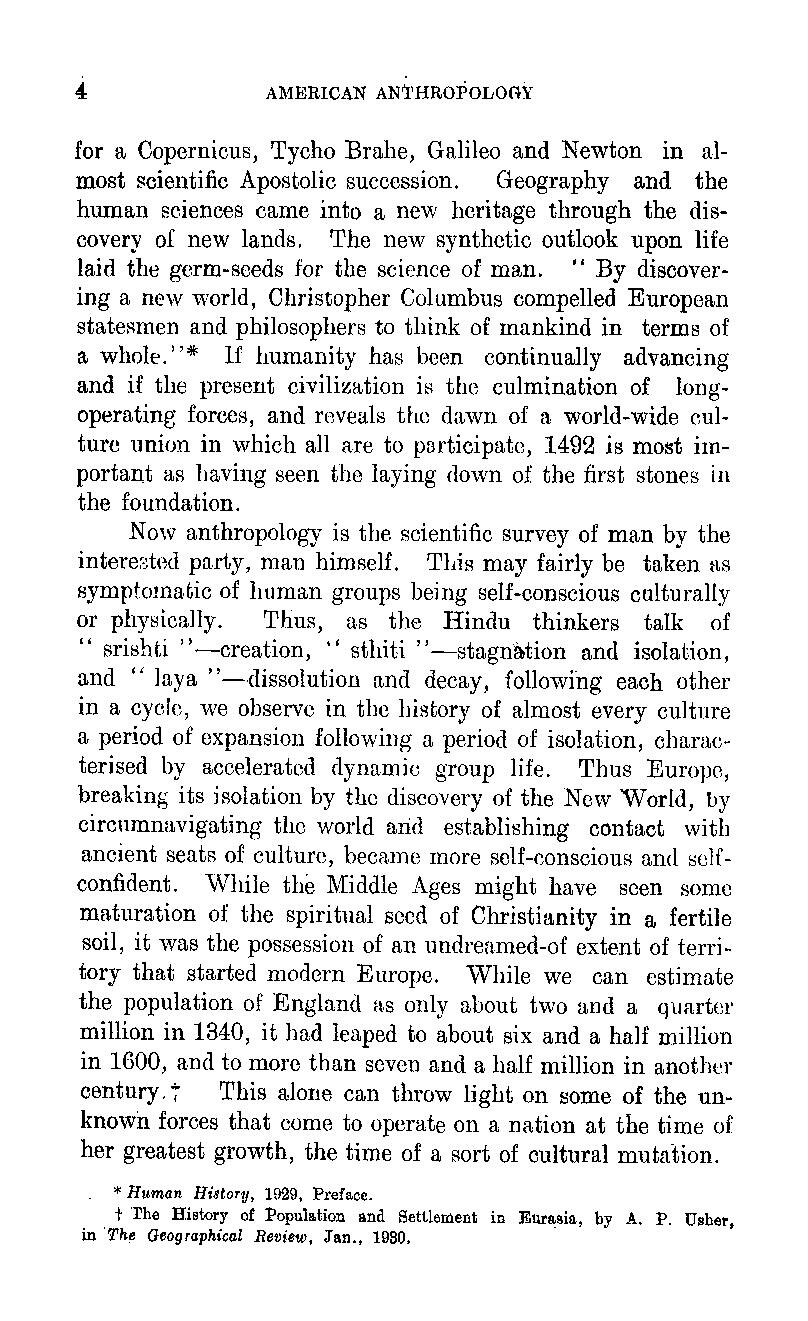for a Copernicus, Tycho Brahe, Galileo and Newton in almost scientific Apostolic succession. Geography and the human sciences came into a new heritage through the discovery of new lands, The new synthetic outlook upon life laid the germ-seeds for the science of man. "By discovering a new world, Christopher Columbus compelled European statesmen and philosophers to think of mankind in terms of a whole."[1] If humanity has been continually advancing and if the present civilization is the culmination of long-operating forces, and reveals the dawn of a world-wide culture union in which all are to participate, 1492 is most important as having seen the laying down of the first stones in the foundation.
Now anthropology is the scientific survey of man by the interested party, man himself. This may fairly be taken as symptomatic of human groups being self-conscious culturally or physically. Thus, as the Hindu thinkers talk of "srishti "—creation, "sthiti"—stagnation and isolation, and "laya"—dissolution and decay, following each other in a cycle, we observe in the history of almost every culture a period of expansion following a period of isolation, characterised by accelerated dynamic group life. Thus Europe, breaking its isolation by the discovery of the New World, by circumnavigating the world and establishing contact with ancient seats of culture, became more self-conscious and self-confident. While the Middle Ages might have seen some maturation of the spiritual seed of Christianity in a fertile soil, it was the possession of an undreamed-of extent of territory that started modern Europe. While we can estimate the population of England as only about two and a quarter million in 1340, it had leaped to about six and a half million in 1600, and to more than seven and a half million in another century.[2] This alone can throw light on some of the unknown forces that come to operate on a nation at the time of her greatest growth, the time of a sort of cultural mutation.
